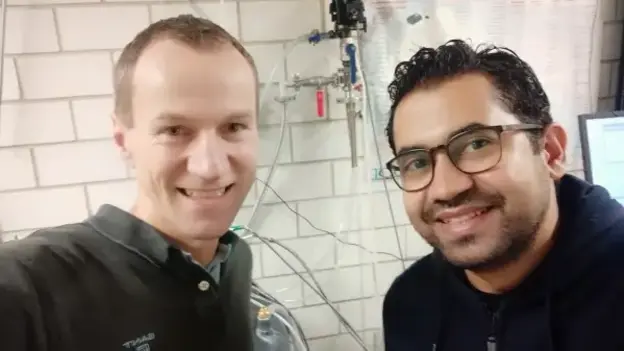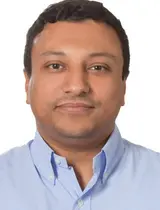Tandem Project
Superconducting Materials by Design
Laboratory Study
By 2030 the world’s population will reach 8 billion people. This poses pressing questions on how to deal with the massive increase in energy-demand. The trend towards the use of alternative, renewable energy resources places high requirements on the performance of materials used under extreme conditions in energy applications (photovoltaics). In this respect, 2D materials such as graphene seem to be promising candidates. They have remarkable properties and make transitions between distinct, competing phases with dramatically different electronic and magnetic orders. Additionally, lithium-ion batteries have become an increasingly important energy storage technology thanks in particular to their high energy density. In this project, and among batteries material, manganese phosphate LiMnPO4, is the most promising superconducting material considering its high theoretical capacity and operating voltage, low cost efficiency and environmental safety.
In their project ‘Materials by Design’ AGYA members Dr. Mahmoud Abdel-Hafiez, Prof. Dr. Ahmed Khalil and Prof. Dr. Nageh Allam artificially created high-quality single crystals of the superconducting material YbRh2Si2 and LiMnPo4 and investigated its performance at ultra-low temperatures. The prepared materials are characterized by the fact that they conduct electricity without resistance. In the superconducting materials, electrons can be transported with no resistance, and hence release no heat, sound, or other energy forms.
The experimental study provided new insights on how to control its properties and put them to use. Potential future applications incorporating such materials are used in efficient electrical power generation, transmission and storage; fast and secure communications; medical imaging and treatment; architectures for processing and caching quantum information; and compact solid-state devices, sensors and actuators.
The results of the study:
- provide highly relevant information on the superconducting order parameter and the interplay between competing phases in iron-based superconductors.
- advance the knowledge of various matter states by using extreme conditions of magnetic field and pressure to enable a continuous, clean and reversible tuning of quantum interactions.
- shed light on the building blocks of exotic magnetism and unconventional superconductivity.
Interdisciplinary research environment & exchange of PHD students
To create the necessary interdisciplinary environment for such research, Arab and German AGYA members from materials sciences, physics, and engineering joined forces. In this manner, cutting-edge expertise in material synthesis was combined with well-equipped infrastructure required for low temperature measurement. Thereby, the AGYA members established a research cooperation between Fayoum University, the American University Cairo, and the Goethe University Frankfurt which included the exchange of Arab and German PhD students. Two PhD students from the Goethe University Frankfurt had the opportunity to visit Egyptian universities and present their work there. In return, two Egyptian PhD students conducted research trips to Germany. For instance, the research stay of Mohamed Magdi Rabie Kamel gave him the opportunity to learn about measuring thermodynamic properties at low temperatures and high magnetic fields at the Physical Property Measurement System (PPMS) in Frankfurt, as well as at the head quarter of Quantum Design Europe in Darmstadt.

Prof. Dr. Krellner (Goethe University Frankfurt) & Egyptian PhD candidate Mohammed Magdi in the laboratory of Goethe University Frankfurt Goethe University Frankfurt
- Disciplines Involved
- Engineering, Materials Science, Physics
- Cooperation Partners
- Goethe University Frankfurt a.M., Germany
- Fayoum University, Egypt
- American University Cairo, Egypt
- Project Title
- Materials by Design: Functional Materials for Superconductivity and Energy Applications under Extreme Conditions
- Year
- 2019
- Funding Scheme
- Tandem Project
- Countries Involved
- Egypt, Germany


